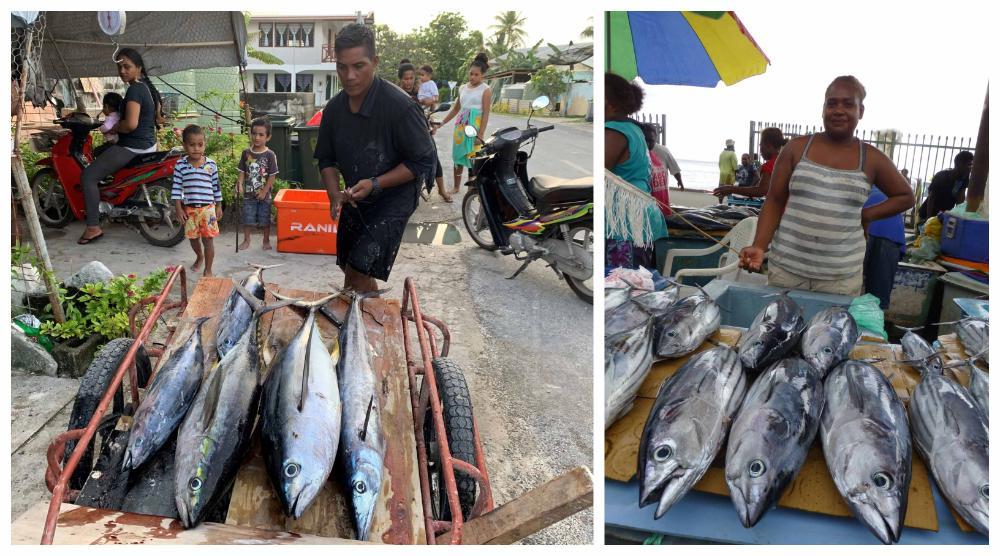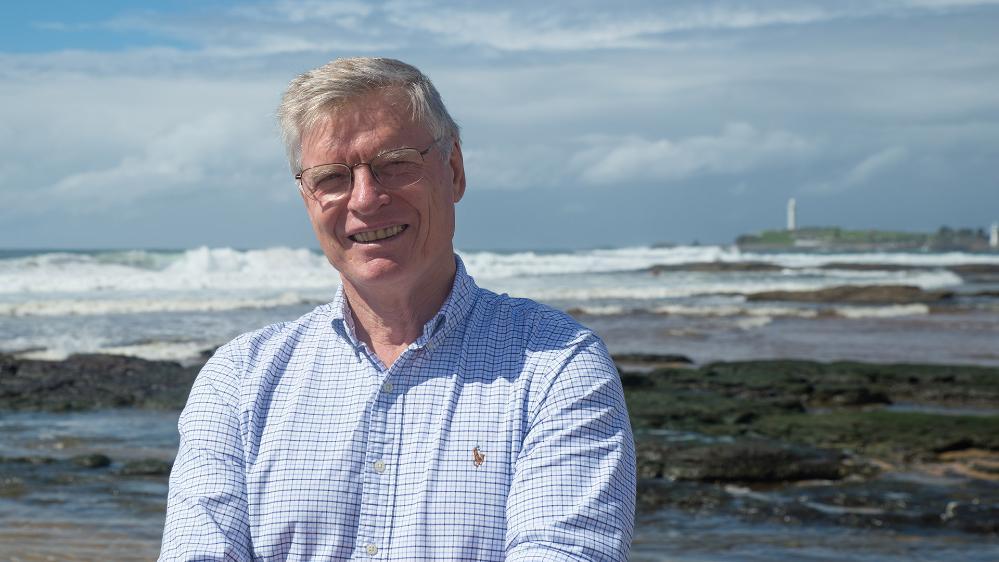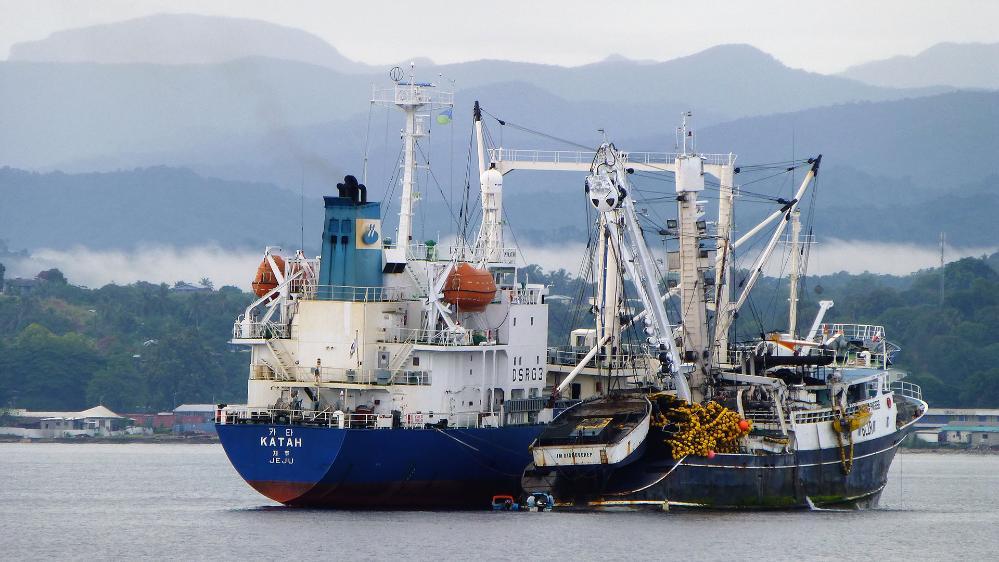August 12, 2020
Tropical fisheries projected to decline 40 per cent by 2050s
Reduced fish catch could impact billions; Pacific Island countries among hardest hit
Climate change could cause a 40 per cent decline in the annual fish catch from some tropical marine fisheries by the 2050s, affecting more than a billion people, an international study has found. The people and economies of Pacific Island countries and territories would be among the hardest hit.
Tropical fisheries contribute around 50 per cent of the annual global fish catch. Those fisheries, however, are vulnerable to changes in the ocean associated with rising greenhouse gases, including warming, acidification, deoxygenation, sea-level rise and altered nutrient concentrations.
The study, “Climate change, tropical fisheries and prospects for sustainable development”, by researchers from University of British Columbia, University of Washington, University of Wollongong (UOW), Brock University, University of Bern, and University of São Paulo, is published in Nature Reviews Earth & Environment.
The researchers drew on a wide body of published research to assess the effects of climate change on tropical marine fisheries under two scenarios. One scenario assumed CO2 emissions continue to rise on their current trajectory with no mitigation, increasing global mean surface air temperature by 4.0 to 6.1 °C by 2100 (relative to 1750). The other assumed strong CO2 emission mitigation restricted the global increase of mean surface air temperature to 1.3 to 1.9 °C.
Under the high-emissions scenario, the researchers project maximum catch potential in some tropical exclusive economic zones (EEZs) to decline by up to 40 per cent by the 2050s. Under the low-emissions scenario, many of the predicted impacts on tropical fisheries would be avoided.
Study co-author Dr Johann Bell, a fisheries expert from the University of Wollongong’s Australian National Centre for Ocean Resources and Security, said climate change was affecting tropical fish stocks in a variety of ways.
“The warming of the ocean is changing the distributions of fish species as they seek out their preferred water temperatures,” Dr Bell said.
“Reduced oxygen levels associated with warmer water are also expected to impair the growth and reproduction of several species.
“Furthermore, growth and survival rates of tuna and other oceanic fish will be affected due to suppression of nutrient levels in surface waters: warmer oceans will increase stratification of the water column, impeding upwelling of the nutrient-rich water required to stimulate growth of phytoplankton at the base of the food chain supporting fish stocks.
“Climate change is also expected to damage important coastal fish habitats. For example, damage to coral reefs, mangroves and seagrasses from higher air temperatures, ocean warming, sea-level rise and more powerful cyclones will reduce the availability of food and shelter for many coastal fish species.”

Tuna on sale in markets in Funafuti, Tuvalu, and Honiara, Solomon Islands. Pictures: Johann Bell, UOW
The study looked at fisheries in the EEZs of Pacific Island countries and territories, Brazil and tropical African nations. A decline in those fisheries would affect the many millions of people in the tropics who depend on them, and hamper efforts to achieve the United Nations Sustainable Development Goals related to food security, poverty alleviation, and economic growth.
As seafood is the most highly traded food commodity globally, a reduction in the tropical fish catch would negatively impact millions more people in countries that rely on fish imports from the tropics.
Dr Bell said Pacific Island countries and territories (many of which are “tuna-dependent” economies, with tuna-fishing license fees paid by other nations providing 30–90 per cent of all (non-aid) government revenue) would be particularly hard hit.
“The effects of climate change on tuna and coral reef fish are expected to be particularly pronounced for the small island developing states (SIDS) that rely heavily on revenues generated from industrial fishing in their EEZs for economic development, and on reef fish for food security,” Dr Bell said.
”The decreased abundance of tuna within the EEZs of tuna-dependent Pacific Island countries and territories is expected to reduce total government revenue by up to 15 per cent a year by 2050 for several Pacific SIDS.”
Dr Bell said it wasn’t too late to reduce the impact of climate change on tropical fisheries, or to mitigate the disproportionate impact climate change will have on Pacific Island countries.
“The key action is to reduce greenhouse gas emissions. If the global community succeeds in meeting the goal of the Paris Agreement to limit global warming to less than 1.5 degrees, the resulting relatively low expected extent of climate-driven redistribution of tuna should be manageable,” he said.
“Failing this, it will be necessary to identify arrangements where Pacific Island countries and territories can retain access to the levels of tuna catch that have occurred historically in their waters, regardless of the effects of climate change on the distribution of tuna.”

Dr Johann Bell from the University of Wollongong’s Australian National Centre for Ocean Resources and Security.
ABOUT THE RESEARCH
‘Climate change, tropical fisheries and prospects for sustainable development’ by Vicky W. Y. Lam, Edward H. Allison, Johann D. Bell, Jessica Blythe, William W. L. Cheung, Thomas L. Frölicher, Maria A. Gasalla and U. Rashid Sumaila is published in Nature Reviews Earth & Environment.
The research was supported by funding from Nippon Foundation, World Bank, CGIAR, ANCORS, Moccasin Lake Foundation, Hans Sigrist Foundation, Oeschger Centre for Climate Change Research, Natural Sciences and Engineering Research Council of Canada, Humanity Research Council of Canada, Swiss National Science Foundation, Horizon 2020, Brazilian National Council for Scientific and Technological Development, Sao Paulo Research Foundation.
Main image: Industrial fishing operations in Honiara, Solomon Islands. A purse-seine vessel tranships its catch to a fish transport vessel for export to tuna canneries in other countries. Picture: Johann Bell, UOW
